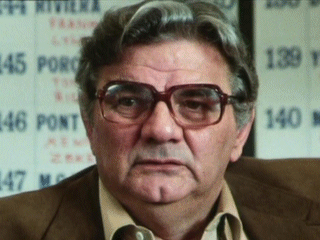
Peter Gent was an accomplished college basketball player at Michigan State. Though he didn’t play football he was still drafted by the Dallas Cowboys where he played wide receiver and tight end for a handful of years in the mid-late ’60s. He was great friends with the quarterback, Don Meredith, became pals with writers like Gary Cartwright and Bud Shrake, and was the classic longhaired rebel to Dallas coach Tom Landry’s stern patriarch.
After he retired, Gent started writing and in 1973 published North Dallas Forty a novel based on his experiences with the Cowboys (and his relationship with Meredith). It was a sensation (for more on Gent’s career, do yourself a favor and pick up Steven L. Davis’s wonderful book, Texas Literary Outlaws). Gent continued writing though he never had that kind of success again. However, he did write some terrific magazine articles. Who better to write about the Cowboys than Gent?
So it being Thanksgiving and all, please enjoy this story by Gent on Thomas “Hollywood” Henderson that appeared in the September 1980 issue of Esquire.
“North Hollywood Forty”
By Peter Gent

A FEW days after I got back from Dallas I was sitting at the Dinner Bell café on the square, drinking coffee with J.C. and Sonny, when J.C. the barber wanted to know: “What’s a paranoid?”
“Yeah,” said Sonny, the justice of the peace, “what’s this word paranoid mean? I hear the deputies always saying some guy is paranoid. What does that mean?”
They looked at me for an explanation.
“l’m paranoid,” I replied.
“They mentioned you first,” Sonny the JP said. “What’s it mean?”
“There are two definitions,” I said.
“Take your choice. One defines a paranoid as a chronic psychotic with delusions of persecution and/or grandeur. The paranoid defends his delusions with apparent logic, whatever apparent logic is.”
“What’s the second definition?” asked J.C., sipping his coffee out of the brown cups the café just got.
“That a paranoid is a man in possession of all the facts,” I said, watching Sonny shadowbox across the stone porch of the café. “William Burroughs said that. He was a junkie and writer with a rich Midwest daddy.”
There was a long pause. The only sound was the rustle of the hackberry leaves and the morning traffic through the square. It was a nice central Texas morning.
“You mean like Shaky?” Sonny said. “He was a junkie from Detroit. We caught him stealin’ and sent him back. Paid his way.”
I think the three of us agreed with William Burroughs, although nobody said one way or the other. The next day J.C. called me Paranoid Pete. I hope that name won’t stick.
There is a party going on now down at the low-water bridge, as there seems to be almost every night since summer arrived. It is midnight in central Texas.
I believe in an element of magic in sports. Even professional sports. I think Thomas Wayne “Hollywood” Henderson, the once and former Dallas Cowboy, was one of those magical players, like Cowboys Duane Thomas and Bob Hayes before him. I don’t think Tom Landry, who coached all three men and who fired Henderson last fall, believes in magic or miracles, though he professes belief in a God. Tom believes in statistics and numbers. What it says on paper. Actuarial. Tom cannot conceive of magic on the football field, and Hollywood thinks he is magic. You see the elemental problem, the basic conflict, shaping up here: the struggle between a magical black linebacker from east Austin and a white ex-World War II bomber pilot from the Rio Grande Valley over exactly who is who. And what is what.

The linebacker has magic on his side.
The Bomber Pilot has the Dallas Cowboys and the National Football League.
Any questions?
Any bets on a winner?

THE PROFESSIONAL athlete, like all show biz performers, often finds it necessary to violate one of the primary rules of survival in America: Stay low, move fast. The responsibilities of celebrity require the athlete to stick his nappy little head up once in a while and be a good boy for the crowd. Woe unto the nappy-headed fool who sticks his head up too high or too long—or not high enough for long enough—or to any height and for any length of time, if not with the correct attitude.
On the eighteenth of November, 1979, during the Dallas Cowboys’ loss to the Washington Redskins, Thomas Henderson waved a souvenir handkerchief that was being marketed by one of his teammates—the old attempt at planning for the tomorrow that never comes—into the lens of a live sideline camera. From my living room, the incident, as I recall, seemed no more extraordinary than the usual sideline antics that are hyped by the networks to give the viewer a feeling of being there. Wherever the hell there is.
Also, as I recall, there was sufficient time in the game for an inspired and magical team to rise from the ashes of certain loss, performing miraculously, never giving up until the final gun, and to snatch victory from the jaws of defeat. And now came Henderson, a linebacker and athlete of phenomenal confidence and matching ability, stepping in front of the camera to flash his friend’s handkerchief and signal that the Cowboys were still number one. There is room to interpret his gestures as inspirational. Maybe not.
The following week Hollywood was called into the offices of the Cowboys organization and told that he was being placed on waivers. In effect, fired. Tommy Landry said that Thomas Henderson was being waived as a result of his antics on the sidelines and added that Henderson’s personality was such that he would be unable to tolerate demotion to the bench—the only other possible punishment, as Landry saw it, for Hollywood’s behavior.

This action, according to the Standard Player Contract and the Collective Bargaining Agreement, as well as a recent arbitration decision (Mitch Hoopes v. Detroit Lions), was illegal in the eyes of the National Football League Players Association. The union felt that Henderson was being denied his rights. Landry was waiving him illegally.
But then Henderson did a very strange thing. At the age of twenty-six, he voluntarily retired, went home, and tore all the phones out of the walls and beat the jacks with a hammer.
Six phones, is what he told me.
Six hundred dollars to Ma Bell.
During the time Henderson’s phones were out, the Players Association was trying to reach him and explain his rights. Thomas doesn’t read the fine print, but Tommy and Cowboys general manager Tex Schramm and vice-president Gil Brandt do.
And they also know how to pull a guy like Hollywood around by his ego like a puppy dog on a leash.
Why not retire? Go out on top?
It was almost a month from the day he was fired before Henderson finally called the NFLPA to inquire about his rights. When lawyer Rick Schaeffer answered the phone, he heard: “This is Hollywood calling from Hollywood.”
Schaeffer knew this case would be trouble. It was. It still is.
Attorney Schaeffer explained to Hollywood that in the judgment of the Players Association, it was improper for the Cowboys to have fired him merely because Landry had objected to his attitude and decided he couldn’t be benched.
“The Standard Player Contract allows a player to be terminated if, in the opinion of the team, he is not competitive with the other players at his position,” Schaeffer says. “However, this was obviously not the case with Henderson. Landry’s feeling was that it would not be psychologically beneficial to Thomas to be sitting on the bench. This is similar to the case of Mitch Hoopes, who, after shanking a punt, was belittled in the press by his coach. The coach later cut him and stated that he was doing so because he had put so much pressure on Hoopes through public statements that Hoopes could no longer be competitive on the team.
“Because he was cut illegally, Hoopes was awarded the balance of the salary due him for the full term of his contract. We would have argued that the same award should be made in Thomas’s case.
“I offered Henderson any help whatsoever that the Players Association could give,” Schaeffer goes on. “And I told him that the first step would be to draft a telegram requesting reinstatement from the retired-player list, which we did immediately and dispatched to the commissioner the next day.”

Meanwhile, Henderson apparently changed his mind. After Schaeffer had begun the necessary procedures on his behalf, Hollywood told the NFLPA people that they, like everybody else, needed him worse than he needed them. That was the last Rick Schaeffer heard from him. The first, of course, being “This is Hollywood from Hollywood.”
Henderson’s behavior has been wonderful theater for those of us who take great joy in the public contradictions of sports as business-as-usual. A man like Henderson is a rare commodity. His actions have been outrageous and, at times, contradictory. But they have never been dull.
During his “retirement,” as Henderson tells it, he went to Landry on his knees and begged the coach to take him back. Hollywood said he’d clean cleats. Hollywood promised to mow the playing field lawn. Landry said no. Henderson then became publicly angry, and the theater continued. He is funny and clever—maybe even brilliant—with a well-developed killer instinct. But he began to demand rights he didn’t have, rights he gave up with retirement.
Now I see from an interview in Inside Sports that I Hollywood has stepped on his pecker again, calling various members of the Cowboys either bisexual, bald, or jealous assholes but conspicuously sparing those guys who said they wanted him back.
“Did you know that [owner] Clint Murchison took away [vice-president of personnel development] Gil Brandt’s wife, married her himself?” Hollywood asked in the interview. “There’s so much going on you wouldn’t believe it.”
I believe it, Hollywood. I believe it.
But, as the old country preacher told the man who came to the altar and confessed to coupling with goats, “Brother,” the preacher said, “I don’t believe I’d ‘a’ tol’ that.”
This could be the moment, as one Dallas fan put it, when Hollywood’s alligator mouth finally overloaded his hummingbird ass.
If it is end game for Thomas Henderson, it’s not because he lacked talent; he just didn’t have the innate sense to cover up the first time he started taking more punches than he was giving. The Bomber Pilot understands that.
My personal opinion, after a longtime acquaintance with athletes and coaches, and specifically with those of the Dallas Cowboys, is that what we saw on TV last November involving the Cowboys organization and Hollywood Henderson was a series of psychotic episodes. They all lost it there for a moment, right in front of everybody.
Psychotic episodes are daily occurrences in a business where the operative phrase is Stick your head in there.
I believe, due to certain of my own biases and a predilection for conspiracy theories, that Mr. Henderson was maneuvered into retirement, which deprived him of his salary and his right to sell his services elsewhere in the NFL. But why get rid of Henderson, a linebacker of exceptional talent? Henderson is quite possibly as good as he claims to be. Why all the fuss over this nappy-headed boy waving at the television camera, when football is, after all, show biz, based on illusion rather than reality?
I went to Dallas to ask around.

I WAS sitting at the window of a ninth-floor room in the Stoneleigh Hotel the week before Hollywood Henderson’s wedding, facing approximately north, reckoning by the Dallas Cowboys tower out on North Central Expressway. The clouds had closed back in after burning off for a while earlier in the day. A new storm was brewing; I could feel it in my joints.
I called Hollywood’s fiancee, Wyetta, who said he was sleeping. Hollywood had promised to talk to me at length but had yet to do so. Wyetta assured me that he’d return my call. No call came.
I spent several days waiting for Hollywood to regain consciousness.
I wanted to talk to him about his bizarre dismissal from professional football because it is the perfect story of what pro football is and where it is going in the 1980s.
The good. The bad. The ugly.
To perform well and earn fantastic sums of money and universal, eternal praise as a professional football player: that is the best. It’s rare, but that is it. The thrill of performing is usually as much as a player can hope for, and even that is wonderful. Athletes are performing artists, and most would do it for free; and that is good. But it also becomes the rub. The fine-print stuff. The Standard Player Contract. The Collective Bargaining Agreement. Owners. Ego. Bad. Ugly. Real.
Yes, pro football is a performing art, all right. And to perform in the National Football League, players need tremendous mental and physical talents. They also need tremendous egos in order to survive. An athlete’s ego is his sword and his shield, and each one uses these weapons differently. Some claim not to have them. Those are the guys not to show your back. No athlete survives without his ego, and it is in the organization’s interest to study each player to determine how best to use that ego—always for the club, sometimes against the player.
The Cowboys organization used to require all new players to take a battery of psychological tests. The test questions were not subtle. Among them you’d find things tike this:
What would you rather do?
A. Kill your mother
B. Jack off
C. Read a book
D. Eat live baby ducks
These tests gave management a personatity profile of each player, and the egos were there, diagramed and ready to manipulate. The organization then counseled each member of the team, interpreting his answers to the questions and telling him how certain psychological techniques would enhance his performance. (After I took my tests, I was never personally counseled, which was always a source of wonder and worry to me. I knew, however, that the correct answer to the question above was “D. Eat live baby ducks.”)
The teams were finally barred from requiring such tests, thanks to the NFLPA, but I don’t believe the psychological profiling of players has really stopped. It’s a basic method for better control of athletes. Coaches and captains from peewee leagues on up do it: psyching up their players and teammates, psyching out their opponents.

When the Cowboys organization decided that Thomas Wayne Henderson had become an opponent, they psyched him out. They hit him right in his monstrous ego and persuaded him to do something contrary to his own best interests.
They certainly pushed the right button: Henderson retired.
It cost him plenty.
A coach once told me that the difference between a coal miner and a football player is that a coal miner actually does productive work, whereas a football player’s job is to keep everybody sitting numbly in front of the TV on Sunday afternoons, tuned to the NFL. In return, the player gets to “feel,” to perform.
It’s the perfect trade-off. Lots of cash changes hands, but only about 20 percent gets to the players in the form of salaries. because deep down we all know they’d do it for free.

AT THE Stoneleigh Hotel the next morning, I ordered from room service and ate breakfast watching the Charlie Rose Show, Fort Worth’s answer to Donahue. Not much of an answer. The guests were local sportswriter Skip Bayless and Jack (They Call Me Assassin) Tatum. Tatum was promoting his book. He was well dressed and mannerly. The camera focused on his Super Bowl ring, and Bayless said. “That’s what everybody wants.”
Tatum, Bayless, and Rose lobbed a few beanbag questions back and forth. Tatum talked quite logically and calmly about the necessity of killing the receiver when he cuts across the middle. The vicious hit that left Darryl Stingley paralyzed and crippled for life was referred to as “an unfortunate incident.” Tatum meant to hurt Stingley; he just didn’t expect to break his neck. He was telling the truth, diluting the horror of what he was saying by discussing it intellectually.
At the end of the show, Tatum said. “You have to keep it all in perspective. After football, I plan a career in commercial real estate.”
Sounds like the old Assassin has it in perspective, all right.
At nine A.M. I called Thomas Wayne “Hollywood” Henderson. I let the phone ring a long time. There was no answer.

“IF I had a resource like Hollywood Henderson, it would be my responsibility to get the most I could out of it in terms of my business, not by insisting that he go to church with me every Sunday.”
I heard than at an elegant Highland Park party the Boomer held that night for an Australian publisher who was touring the United States and who had known the Boomer when he was a high jumper in the 1956 Summer Olympics in Melbourne.
I think the Boomer was a 7-foot jumper.
High jumping. Jesus, what an event.
Boomer punted for the Cowboys in the ’60s when I was with them. To me, his greatest moment came at Kezar Stadium after he had kicked a towering spiral. Boomer stood there alone, cranelike, near the end zone. on real grass, shading his eyes against the San Francisco sun, watching the ball soar higher and higher from the tremendous force of his long leg. Suddenly, the treacherous Kezar wind swirled and caught the ball—a treasonous perfidious wind blowing out of the Haight-Ashbury. The ball hung in the air, the force of this tall high-jumper’s leg contending with nature on the Left Coast. The stadium was strangely silent as fate decided. Then, sounding shocked, but with its usual very proper Australian accent, came Boomer’s voice.
“My Gawd “he said clearly “it’s coming back.”
Boomer quickly retreated because the ball always drew a crowd. Boomer avoided the rush.
Jesus, the Boomer could kick that ball. It was also at the Boomer’s party that the amusements editor of one of the Dallas papers asked me what Spanish title the movie North Dallas Forty had played under, saying that Cabaret had been shown in Mexico City as Adios Berlin.
Magic language, that Mexican Spanish.

Returning from the Boomer’s party early in the morning, I saw a headline on the front page of the Dallas Times Herald: LANDRY SEES FILM AS OBSCENE. There was a picture of the Bomber Pilot. The chilling headline froze me in my tracks.
“Coach Tom Landry of the Dallas Cowboys, summoned by state prosecutors, testified Thursday in the obscenity trial of a local adult bookstore proprietor,” the article began.
“Landry, who appeared as an expert witness on community standards, … had made an earlier trip to the courthouse … to view an untitled 12-minute ‘peep show’ that portrayed sexual intercourse and oral sex.
“Landry testified that he addresses 8,000 to 9,000 people each year … and said he nearly always spoke on the problem of obscenity and pornography.
“‘I speak on the philosophy of humanism which is creeping into our society… ,’ Landry explained.”
Landry is an expert on obscenity.
Community standards by the Bomber Pilot.
Creeping humanism? Nigger, please. Not that.
Tom Landry sees films as ….Tom Landry sees life as…Tom Landry interpets God as … Tom Landry sees Thomas Henderson as … No wonder Hollywood is asleep all the time.
Adios Berlin.

THE COWBOYS always want you to be what they want,” says Hollywood Henderson. “They were always after me to join the Fellowship of Christian Athletes—not because I’d want to, but because it would be a good image. Hell, I’m too sincere in my faith to use religion like that. But these God-lovers on the Cowboys think nothing of it.”
In 1964, my first team meeting with the Cowboys was opened by Landry—I believe he held a Bible in his hand—talking about football and God. He had found a connection, and he recommended it to all of us. Landry’s connection escapes me now, but the picture of some gut hammering the hell out of people was the jawbone of an ass always comes to mind. I don t think that was how Tommy connected it at all. He let slip that he was a Methodist.
On the blackboard every Sunday would be a list of cars and buses with times of departure for various churches in the southern California desert they called Thousand Oaks, which would eventually contain thousands of people but had at the time only a bowling alley and an all-aluminum Lutheran college where we trained. The country was so desolate it served as location for Gunsmoke.
That first Sunday, I checked the schedule and rode with Landry and his young son, Tommy Jr. That Sunday I became a full-blown Methodist.
I never went back, but in retrospect I think that by landing that first Sunday punch I gained me a little extra time in the NFL. It was worth it. One Sunday as a Methodist.
I should have gone twice. Apparently Hollywood Henderson didn’t go at all.
At that first team meeting, the Cowboys’ public relations man gave us the best advice of all, though I doubt that many players listened. A heavy man, he gripped the podium for balance and looked out at us with big sad eyes that were watery from emotion or drink or both. He was silent for a moment, gazing at the assembled group of anxious, oversize men in shorts and T-shirts. The very first words out of his mouth told me more about survival in the NFL than all the coaches and exercise programs and life philosophies and team doctors ever would.
“Boys,” he said, “this ain’t football, this is show business.”

The rest of his talk went on to explain each player’s role in the show, from attending photo sessions to granting interviews and presenting proper images.
The next speaker explained how our jocks should be rolled up inside our towels along with our socks. Then the trainers told us about medicine and pills, about which ones to take when, and why.
I never forgot the PR man’s words, and I always wondered what happened to him. The last I heard, he was sweeping out bars for drinks—but who knows? He probably hears the same about me.
“Boys, this ain’t football, this is show business.”
I never forgot those words, and you shouldn’t either. Don’t dismiss them with an oh yeah, sure, or use them without thinking. Realize what those words mean to you, the customer.
Are they really showing you the elephant, or are they just gonna tell you you saw it?

I WAS waiting on the ninth floor of the Stoneleigh for Dave Edwards. He was a Cowboys linebacker for many years, and the man Hollywood Henderson replaced. We were going to lunch at the Mecca Restaurant out on Harry Hines Boulevard.
The TV was on in my room when I called Henderson again. His fiancée told me he was still asleep.
Wake up, Hollywood.
Edwards arrived and paced the room. He has lots of energy, bottled up now without the release of football. We renewed our old friendship while the television provided background and a drain for Edwards’s brimming energy.
“You know,” he said, “we had to stay in this hotel after training camp in 1963. It was the only one in town that would take the black players.”
We left the Stoneleigh to eat lunch and then to see Edwards’s boys, Chris and Mike, play soccer.
“Why did Tom cut Hollywood?” I asked once we were in the car.
“Landry hates someone to go overboard and steal the limelight from the organization,” Dave said. He grinned at me. “I think they had a personality clash.” We both laughed at his understatement. “Show biz,” he went on. “That’s what they used to always tell us, wasn’t it? This is show biz.”
“Was Hollywood good?” I asked.
“You couldn’t control Thomas, but goddamn, he was good,” Edwards said. Dave Edwards played linebacker for the Cowboys for more than a decade, and he thinks Hollywood was good. He continued, “He’s a great linebacker and a great athlete. Linebacker’s a tough position to learn. All those keys and audibles. He picked it right up—fast. And he was funny.”

We were driving along in Edwards’s battered white Ford—the “war wagon”—on Harry Hines Boulevard, searching out the Mecca café.
“He was the first linebacker to return a kickoff ninety-seven yards. right? Goddamn, I say this sumbitch can get on with it. Goddamn. this boy is pretty good. Kinda fast,” Edwards said. laughing. “I chose to play this position because you could be slow and do it. Hollywood comes along. and time for me to get out.” He laughed again.
The construction along Harry Hines was frenetic, and Edwards scanned the neighborhood for the café.
“Thomas’s rookie year, he had a gold star put in one of his front teeth—always smiling, showing the star. Gene Stallings had just come in from A&M and walked into the linebacker meeting, dour and militaristic, and Hollywood was wearing sunglasses—you know the kind, dark at the top and clear at the bottom. Stallings says, ‘Thomas, the sun too bright in here for you?’ And Hollywood grins, showing that gold star on his front tooth, and says, ‘When you is cool, the sun is always shinin’.'”
We missed the Mecca on our first pass, and Edwards continued to talk. “That’s what I try to tell the people about, back then when things was real tough, when Landry didn’t put up with no shit. You remember when he cried in the locker room at halftime? Well, things have changed some. First Duane [Thomas] came along and kind of egoed out, or something like that. Duane didn’t have a hell of a lot of eloquence when he was speaking, and he got really paranoid. I tell you, that Duane was good, though, like Hollywood. He was a natural athlete. He hit the right groove at just the right time.”
Edwards suddenly stopped talking and looked blankly ahead, while inside he looked back:
It was 1974 and Dave Edwards had played pro football for a decade when he went to see his head coach because he was troubled and the coach was a Christian man who worried a lot about obscenity.
Edwards was afraid to tell the coach what was on his mind because of the deeply revealing nature of the story. Finally he said, “Coach, several nights ago I dreamed I killed you.” He had difficulty controlling the pitch of his voice. “I dreamed I pushed you off a cliff.”
Tom Landry looked shocked but had little concern, comment, or advice for Edwards. Later. Mike Ditka, one of the assistant coaches up from the player ranks, got drunk with Edwards. Landry had told Ditka about Edwards’s dream.
Landry’s advice was to forget about dreaming.
“Yeah, in the early years Landry didn’t put up with any shit,” Edwards began again. “You had to hit the floor running to just stay on the team.”
We had lunch at the Mecca: chicken-fried steak, homemade biscuits, three vegetables, and a big iced tea.
“One time l walked up to Hollywood and asked him how he was doing,” Edwards said, “and he spoke in a whiny little voice: ‘Oh, Dave, I ain’t doin’ too good. Look at these little arms, they’re so skinny and all, and I been sick.’ And then he lunges forward into my face and growls, ‘But I’m quick.’
“He was one funny guy, T.W.—l called him T.W. He made up all that Hollywood stuff himself. Knew exactly what he was doing. You would’ve loved Hollywood.”

“You know, I made a mistake back then when I was playing,” Edwards said as we crossed the hot parking lot to the war wagon. “I used to meditate on a tiger for fifteen minutes a day. You know, to get mean … and now … it’s like that tiger is loose inside my head. I can’t cage him up anymore.” His jaw was tight. He looked at me. He was searching my eyes.
Edwards and I passed the rest of the time until his boys’ soccer game at Bachman Lake “watching the animals,” as he called it. They roller-skate and barbecue around Bachman Lake, and generally get down. Dallas sure has changed. We reminisced about the old days when Landrv cried and constantly made errors that he would blame on athletes who had no recourse but to duck their heads and “react like football players.”
I don’t think Hollywood is gonna be ducking his head.
Duane Thomas didn’t.


IF CUTTING Hollywood was a psychotic episode on the part of the Dallas organization, the thing to marvel at is the technique by which the organization recovered enough to remember the fine print and to allow Hollywood to have his psychotic episode, which consisted of refusing waivers and retiring. When he let sixty days pass without challenging the Cowboys’ right to cut him, Henderson deprived himself of his grievance case under the Collective Bargaining Agreement and the Standard Player Contract.
The organization, having first cited Hollywood’s sideline antics as the reason for his dismissal, later mentioned that his play had not been up to standards. They replaced him with Mike Hegman, who was thereafter seen chasing ballcarriers into the end zone—ballcarriers Hollywood might have caught in the backfield. Yet announcers and sportscasters were soon talking about the poor quality of Henderson’s play prior to his retirement. Wasn’t it a shame?
This ain’t competition. man. man
This is war
And you can’t hit the comers no more
—”Can’t Hit the Comers”
by Bob Seger
It ain’t even war, it’s just show business. But show business is a kind of war. It is a struggle over who creates and defines the illusions, not who puts the ball in the end zone or the strike zone. You don’t have to hit the comers if you.are the one who defines the corners.
I see in the trades that Cowboys owner Clint Murchison and broadcasting magnate Gordon McClendon have purchased a subscription TV system. McCiendon made his reputation in radio by creating imaginary baseball games, complete with sound effects—crowd noise, crack of the bat—while an associate telephoned the progress of the real game to him. The power to define reality.
You beginning to get the picture yet?
The illusion?
Thomas Henderson was trouble, and besides, he just didn’t have it anymore.
Everybody agreed.
Everybody important.
After a while, even Hollywood will begin to wonder.
Duane Thomas did.

I FINALLY get Hollywood Henderson on the phone He sounds sleepy. We make plans to meet at Biff’s on Greenville Avenue. On the phone Hollywood seems to be bobbing and weaving. After the long string of unreturned calls and all the “sleep,” I wonder if he will show up.
Greenville Avenue was all pasture when I was with the Cowboys. Now it is single-swinger city, with discos and all the trimmings. I get this visceral feeling that Hollywood is going to put on a show for me instead of putting out any information. His expected trade didn’t go through during the recent NFL draft. He is beginning to feel the pressure of the fact that the NFL is the only game in town.
I’m interested in the legal aspects of the situation, what his case means to the players’ union, but I’m afraid Hollywood isn’t going to oblige me by acting like Joe Hill or John Herny. At Biff’s my fears arc confirmed. It is Hollywood’s hangout, where he does some of his show business. In addition, it is allegedly on the NFL blacklist.
I am already seated and drinking when Henderson arrives, dressed in tight bells and his jersey from the Pro Bowl. Dallas sports and society experts Joe Miller and Roy Yarrow are at the table; they offer to leave and give Hollywood and me some privacy. Hollywood says no and checks his watch—two bad signs. He wants an audience and isn’t staying long.
It is long enough.
I enjoy all I can stand.
Hollywood is funny and full of jive, dodging and angry; at the slightest push, he explodes into vicious, unthinking tirades. I can see the pressure is on him. Time is running out. “If Landry got down on his knees right here and begged me to play for the Cowboys, I wouldn’t. I’d kick his head in. And he’s a nice guy—I call him Tom. I’m gonna be on the cover of Inside Sports.” He brags of his interview with Inside Sports, glancing restlessly around the room.
“The Forty-Niners want me bad,” he says. “The contract I want is a million for five years.” He holds up five fingers. “They need me.”
I ask Hollywood if the NFLPA has been in contact, and he begins an obscene attack on the union for not helping him.
“Rick Schaeffer said they couldn’t reach you, Hollywood,” I say, “because your phone was out of order.”
I tell him that I’ve heard he ripped his phones out. Hollywood grins.
“Yeah, I tore six phones out of the walls, and then I went around and hammered the jacks flat. Then I threw the phones into the street. The phone company charged me six hundred dollars to put it all back.”
Ma Bell better not mess with Hollywood. She needs him.
“I guess that means you’re negotiating for yourself?” I ask Hollywood admits that he’s cutting his own deal with the 49ers, but when I press him for details, he seems evasive or just ignorant, never answering directly, speaking more for effect or rhythm than for any substance. He keeps talking about the million dollars for five years that he has demanded of San Francisco; but according to the Standard Players Contract, he can’t demand anything. The Cowboys still own him because he retired with three years remaining on his contract. The commissioner has yet to reinstate him in the league. When I point this out, Henderson sloughs it off with “They better not fuck with me or else I’II write a book that makes North Dallas Forty look like a fairy tale.”

He grins his monster grin. “Read what I told that guy from Inside Sports.” he says. ‘Til be on the cover.”
He stands and says he’s got to go to the bank. He has given me fifteen minutes.
I order another drink and watch Hollywood swagger out. He is a handsome physical specimen.
“He’s a good-lookin’ guy, okay,” a Braniff stewardess tells me. “But without football, he’s just another blue-gum from east Texas.”
My drink arrives. It’s sure gonna be tough to make Hollywood’s story into John Henry versus the Chesapeake & Ohio or Joe Hill versus the Southern Pacific.
The waitress says she was born the year I joined Dallas. We were 4-10 that year, and most people had never heard of the Cowboys. The Central Expressway access road ended in cotton fields, and the only blacks in this part of town were carrying tow sacks across the prairieland, not swaggering out of singles bars.
Hollywood Henderson didn’t make the cover of Inside Sports.

MORNING. The ninth floor of the Stoneleigh Hotel in the Oaklawn section of Dallas, my favorite part of town. The air is cool, and there is a haze. I’m sitting with my feet up on the open window sill, watching the jets cruise into Love Field and recalling the ’60s in Oaklawn, when Love Field was the only airport around and the jets would come in bone-rattling low, screaming over the housetops. When Braniff was threatening a strike, their pilots came in extra low and loud, and the dogs howled and ran around in circles.
It is Hollywood’s wedding day.
At 2001 Bryan Tower, high in the Dallas skyline, the wedding is beautiful and classy, the people are gentle. l am sitting with former Cowboys teammates Bob Hayes and Willie Townes and their wives. The groom is wearing white tie and tails, and the highlight of the ceremony comes when the black preacher holds his hand over Henderson’s head and cries, “Bless this marvelous man called Hollywood.”
At the reception I meet Hollywood’s college coach, Big Daddy Nivens from Langston University. Big Daddy says, “At college Thomas used to meet the other team’s bus and ride with them to the stadium, telling them how bad he was gonna whip ’em. He never caused any trouble.” Big Daddy says, “I knew be was gonna be okay his freshman year. I always give freshmen pants that’s too big for them. They usually tape them up. But not Thomas. He took his to a woman in town and had them tailored. I knew he was gonna be great.”
“Wasn’t that a class wedding?” Hollywood says to me later. “Tell them my groomsmen are worth two hundred million. You think I’ll end up like Duane Thomas or Bob Hayes?” He grins knowingly. I don’t know what that’s supposed to mean.
All the groomsmen are white except two.
“Who are these white guys?” I ask an old teammate.
“They didn’t get no two hundred million giving it away at a colored boy’s wedding, ” he replies. “All of them supposedly own places that the league put off limits.”
The party moves to south Dallas and the Plush Pup, a black disco on Grand Avenue a couple of blocks from the Cotton Bowl. At the disco, a friend of Hollywood’s tells me he advised him to keep a low profile, get married, and stay away from white women. Seems like good advice for any man.
Willie Townes and I talk about the old days with the Cowboys.

“I knew about the Cowboys from the day Tex Schramm asked me, ‘Willie, how you doing?’ And I said, ‘Tex, my aunt just died, and—’ Tex interrupted: ‘Good, good,’ he says.’And how’s the rest of the family?'” Willie shakes his head. “I figured the rest out from there.”
“Who is advising Hollywood?” I ask Willie. “‘Tell them my groomsmen are worth two hundred million!’ What sort of bullshit is that? He needs the union. All the players do. Does Hollywood understand that nobody else helps you when you begin to sink?”
“He’s scared, Peter, ” Willie says and then tells me how it was after he got cut. “Peter, people would come up to me on the street and say, ‘Hey, ain’t you Willie Townes, that fat guy—the guy on the fat man’s table?’ People really love sticking it to you when you’re back down on their level.” Willie drank another Lite beer. He works for a Miller beer distributor.
“I can’t get a straight answer out of Hollywood,” I complain to Willie. “He’s all bluff. Why?”
“Look, man,” Willie repeats, “he’s scared. Time is short. The questions are coming hard and fast. ‘What are you going to do, Hollywood? Who are you going to play with?’ He is scared, man.”
Who is advising Hollywood? Apparently no one. It hardly seems a fair match. But after all, Hollywood is magic.
“He says he’s asking the Forty-Niners for a million,” I say.
Willie just smiles. “Can’t hurt to ask.”
We watch the party as Hollywood moves about the Plush Pup in his elegant white tails. He seems confident. He looks beautiful. Everyone looks beautiful, but Hollywood is the definite center. Can he hold?
The wedding party moves from south to north Dallas, and Willie and his wife eventually drop me off at the Stoneleigh. Up in my room looking out the open window: the Oaklawn section is quiet now. A night bird sings. I think about Tom Landry setting the standards for this town. I love this town. I came of age in this town. I learned things here, met people from the Northeast and Midwest, people of all colors, all sizes and shapes. A lot of them were athletes, football players. They needed the union then, and they need the union now. It is show business, and they are laborers with public images, and each player is responsible for his own image. Henderson must become responsible for Hollywood—not for the Cowboys or the NFL, but for himself and other athletes like him, men struggling to keep fame from sucking them under. Hollywood and the NFLPA need each other, or soon Landry will be setting standards for the world.
We are just the survivors, Willie. Think about all those guys who sank without a trace.
“Don’t hurt me, now, Pete,” Henderson said when I left. Hollywood was dressed in white tails. We didn’t discuss the union.
It was his wedding day.
Class wedding.
Two hundred million worth of groomsmen.

A COUPLE days later I start calling the newly married Henderson, trying to get my promised interview. The phone is seldom answered, and then only after it has rung for a long time. His bride. Wyetta, always answers, and Thomas is always asleep. I leave my name and number in case he regains consciousness. Apparently he never does, for my calls are not returned.
My final morning in Dallas is sunny, cool, quiet. I realize that the haze is not going away. It is constant, as it is in Los Angeles. In the morning paper is a story about Hollywood’s replacement: “Mike Hegman, the Dallas Cowboys linebacker indicted on forgery charges in March and scheduled to go on trial last Monday, has had his trial date moved to Dec. 8—two weeks before the end of the National Football League regular season,” the article begins.
“There have been no special concessions made because he’s a Dallas Cowboy,” the DA on the case is quoted as saying.
“It was just a coincidence that (the new trial date) happened to go into the season,” Hegman’s attorney is reported to have said. “It’s just one of those things.”
It’s also a coincidence, no doubt, that on the West Coast recently, Cowboys defensive back Dennis Thurman convinced authorities that he was only joking when he passed a note to a bank teller saying that he was holding up the bank. “Sorry, y’all, just kidding.”
Yet Hollywood is out. Out cold, apparently.
l start packing. My laundry has not returned, but it is time to leave. I can feel it in my bones.
I try one more phone call to Hollywood. His new bride says he is still asleep.
I guess so.
l finish packing.
I don’t wait for my laundry.
Adios Berlin.

A FEW days after I returned to hill country—the day J.C. the barber and Sonny the JP wanted to know the definition of paranoid—an article appeared in one of the Austin papers: “Thomas ‘Hollywood’ Henderson, the former Dallas Cowboys linebacker whose sideline antics prompted his dismissal from the team, has been traded to the San Francisco 49ers for an undisclosed 1981 draft choice,” the paper reported.
“Cowboy spokesman Greg Aiello said the trade was unconditional, explaining that Dallas would get a draft choice even if San Francisco ‘cut Henderson tomorrow.'”
The operative phrase is undisclosed draft choice—that and unconditional. These are usually the kiss of death, but maybe not for Hollywood, who has his magic and is a great linebacker.
Still, an unconditional, undisclosed draft choice is something that exists only in the realm of the imagination. It is the classic corporate ploy. Now when Henderson wakes up he’ll have another corporation—the 49ers—between him and the Cowboys. If he were to file a grievance over his firing now, which corporation would he file it against? And how?
Run too slow, they fuck you; run too fast, they bite you on the ass.
Call your shot, Hollywood.

IN AUSTIN, my wife phoned with a message to return Hollywood Henderson’s emergency call. The new bride answered, as usual, after a long series of rings. Then Hollywood came on the line and sleepily warned me not to repeat certain things he’d said about teammates and people at the wedding. I guess he’d finally regained consciousness—but a little late, I’m afraid. I was tired of dealing with his ego, but I understood his problem and have been trying to explain it to you.
Now that I finally had Hollywood on the phone, I didn’t want to talk to him. “Look. Thomas, I stayed in Dallas for ten days trying to talk to you. I thought your case was a good one to show how a player’s rights are so easily violated. How his ego is used against him. How they make him look crazy. How badly the players need to support the NFLPA. Have you talked to the union lately? To Rick Schaeffer or Ed Garvey?” I knew he hadn’t. I knew what he was thinking: They need me worse than I need them.
“I’m interested in your legal case, Thomas. I’ve been through all the name-calling bullshit. They can say worse things about you than you can say about them, and they can do it longer. No matter what you call them, they can always call you ‘not good enough.’ You got a new contract with the Forty-Niners? The one-million-dollar one?”
“Yeah, there’s a contract.” His voice was sullen. He was evasive again. No mention of one million. “I negotiated it myself.”
Hollywood paused. “You better not fuck me up, Peter. Everything’s going good.”
“Yeah, sounds wonderful,” I said. “Listen, Thomas, we both got enough paranoia without this.” I hung up.
I don’t know if Thomas understands. I’m not certain I do, either. But then, that’s the idea, after all: Just keep sticking your head in there.
After I hung up, I thought of Willie Townes puffing his cigarettes and drinking his Lite beer and saying, “He’s scared, man. He’s scared.”
Me too, Willie. Me too.

All efforts have been made to reach the rights-holders for this story. If you are the rights holder and would like this story removed, please contact me.—Alex Belth

















































































































